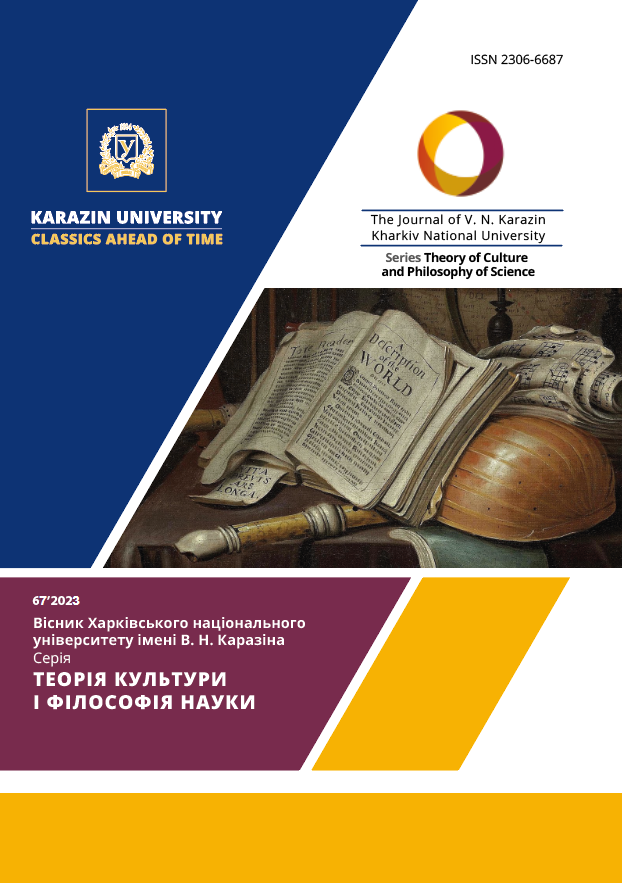CONCEPT OF CONSCIENCE WITHINETHICS
Abstract
In the article, a study was conducted to establish the connections of conscience with other ethical categories and to analyze the main approaches to the interpretation of the concept of conscience within the framework of ethics. The results of the study make it possible to make sure that all the antinomies listed in the article are reflected in attempts to define conscience as a moral category. But ethics does not teach conscience, but can only explain its role. Conscience is an organ of moral intuition.
Conscience is one of the relevant topics of human life, moral reflection that allows you to feel the falsity in your behavior, understanding the malignity of an act.
The article proves that, on the one hand, conscience is an undeniably existing moral phenomenon, on the other hand, it must be rationalized, since we are talking about it within the framework of ethics. Conscience, as a synthesis of external and internal, prompts a decision only in a single situation. It is not universal. There can be no moral situations in which the decision is made by the deductive method. All responsible decisions are made relying only on one's conscience. Life is the art of interacting with your conscience.
The article draws attention to the interpretations of the substantial approach, which take the grounds of conscience to the border of individual moral consciousness and to the border of subjectivity, while in the case of the individualistic approach, conscience is perceived only as a phenomenon of autonomy.
Downloads
References
Bulatov M. German Classical Philosophy // Philosophical Encyclopedic Dictionary / V. I. Shynkaruk (ed.) and others. Kyiv: Institute of Philosophy named after Hryhoriy Skovoroda of the NAS of Ukraine: Abris, 2002. 749 p.
Buriak-Stefanova N. B. The Phenomenon of Religion in the Philosophy of Erich Fromm: Social-Philosophical Analysis: PhD thesis in Philosophy: 09.00.03. Kyiv, 2019. 179 p.
Habelko O. The Humanistic Direction of Michel de Montaigne's and John Locke's Ideas // Ridna Shkola. 2007. № 2. P. 77-79.
Dymerets R. Spinoza's Concept of Natural Potency (potentia) and the Transformation of the Notion of Nature in the Natural Philosophy of the XVI – XVII Centuries // Sententiae. № 2 (XI). Vinnytsia: UNIVERSUM-Vinnytsia, 2004. P. 83-101.
Razdova T. O. Patterns of Conscience in the Philosophy of M. Heidegger (Reflection on its Main Dimensions). Actual Problems of Philosophy and Sociology: Scientific-Practical Journal / Chief Editor S. H. Sekundant, Responsible Editor D. V. Yakovlev; Ministry of Education and Science of Ukraine; National University "Odessa Law Academy". Odesa, 2021. Issue 33. P. 63–66.
Razdova T. O. Conscience as an Inner Spiritual Form of Culture in the Ethics of I. Kant // Bulletin of the National Technical University "Kharkiv Polytechnic Institute". Series: Actual Problems of Development of Ukrainian Society / coll. sci. works. Kharkiv, 2023. Issue 1. P. 14-18.
Riashko O. V., Ostapenko L. O. Rights and Freedoms of a Person in the Philosophy of Hegel. Scientific Bulletin of Lviv State University of Internal Affairs. Series: Legal Sciences. 2017. № 2. P. 65–77.
Turchyn M. Ya., Pavlov Yu. V. Ethics of Virtue and Theology of Knowledge in the Works of Aristotle / M. Ya. Turchyn, Yu. V. Pavlov // Scientific Journal of National Pedagogical Dragomanov University. Series 7: Religious Studies. Culturology. Philosophy. 2015. Issue №34. P. 229-234.
Gardner S. Routledge Philosophy GuideBook to Kant and the Critique of Pure Reason . Routledge, 2003. P. 392.
George H. Mead: Geist, Identität und Gesellschaft aus der Sicht des Sozialbehaviorismus Frankfurt/Main, 1995. S. 196.
Georg Simmel: Zur Psychologie der Scham (1901), in: Georg Simmel: Schriften zur Soziologie. Eine Auswahl. Herausgegeben und eingeleitet von Heinz-Jürgen Dahme und Otthein Rammstedt, Frankfurt/Main 1992. S. 144.
Heidegger M. Kant und das Problem der Metaphysik / ed. F.-W. von Herrmann. 5th ed. Frankfurt : Klostermann, 1991. 405 S.
Timmermann J. Kantian duties to the self, explained and defended. Philosophy. 2006. № 81. P. 505-530.
Citations
VISUALIZATION OF THE ARTISTIC IMAGE OF WAR IN CONTEMPORARY UKRAINIAN POETRY (BASED ON THE MATERIAL OF THE ANTHOLOGY «WITH FAITH IN VICTORY»)
Solovyova Yuliya, Konieva Maryna, Konavalova Sofiia & Markhaichuk Nataiia (2024) The Journal of V. N. Karazin Kharkiv National University, Series "The Theory of Culture and Philosophy of Science"
Crossref




